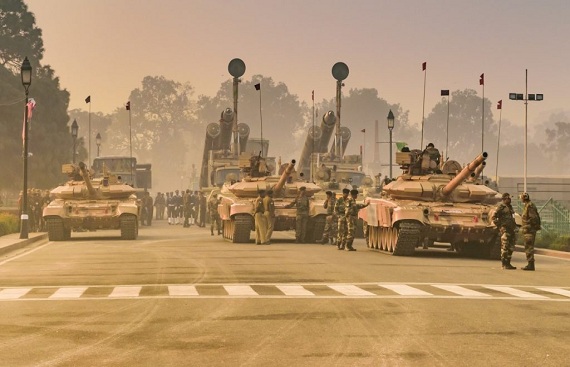Making India Atmanirbhar through Defence startup

India has one of the world’s largest defence forces. It is important to have world-class defence industries to meet its growing demand. PSUs like Hindustan Aeronautical Limited, Ordnance Factory Board, and DRDO, have helped in achieving self-reliance on many fronts, but still, India is the 2nd largest arms importer and it has been importing various defence equipment from its friendly countries like Russia, France, Israel and USA.
One lesson India might learn from the ongoing crisis in Russia and Ukraine is that they cannot rely on other countries for defence technology. The government has chosen to boost indigenous manufacture in an effort to lessen reliance on imported military platforms. India spends $70.6 billion on defence, which places it third in the world behind China and the United States. This increased from 2020 by 0.9%. A further 25% of the funding is set out for business, entrepreneurs, and academic research and development.
![]()
The Ministry of Defence has set a goal of a $25 billion turnover in defence manufacturing in the next five years including an export target of $5 billion in military hardware.
Ironically, despite being a growing nation, we were unable to fully utilise the potential of a skilled human population. The new initiative "Make in India" has made an effort to rectify this by highlighting the private sector's contribution to R&D and defence manufacture. India is focusing less on PSUs and more on startups, similar to the USA and Israel.
“India is a bit behind the western market. Countries like the UK, which is one tenth the size of our country, have around 5000 drone companies. But India has only around 150 drone companies. This spectrum of difference can be met only if many operators come into the picture. We are aiming to enable this growth by easing the burden of drone operators in managing the bulk of data and helping them achieves missions across multiple use cases,” said Rohan Raj of Blurges, a drone-startup from Bengaluru.
![]()
The motive of Atmanirbhar Bharat is just not on Make in India but Make for World too. In 2018, Prime Minister Narendra Modi launched a flagship program for technological innovation called iDEX (Innovations for Defence Excellence), under the Ministry of Defence. iDEX aims to achieve self-reliance and foster innovation and technology development in the Defence and Aerospace Sector by engaging Industries including MSMEs, startups, individual innovators, R&D institutes, and academia.
The Defence India Startup Challenge (DISC), which awards start-ups with mentoring and funding based on their capacity to address specific technical issues given by the military, has been hosted by iDEX since its establishment in 2018. 60 start-ups have received funding so far, and iDEX has identified technologies like foliage penetration radar, artificial intelligence-based satellite image analysis, secure hardware encryption devices, unmanned surface and underwater vehicles, and 4G/LTE tactical local area networks, among others.
“Drones are on a rise with a lot of private and government initiatives fuelling innovation in drone tech. We are developing an easy to use automation platform powered by state-of-the-art deep tech algorithms.” “While we look forward to expanding into the International market we vouch for 'Make in India, make for the world, Raj added.
In 2019, DRDO started Dare to Dream, a Pan India Innovation Contest to support startups & innovators to contribute to the Defence ecosystem. Best ideas were selected and awarded. DRDO also supports awarded ideas to realize them into Prototypes through Technology Development Fund (TDF) scheme. At present, a total of 37 projects have been awarded to various industries especially MSMEs and Startups under the TDF scheme.
![]()
As of 2022, the Ministry of Defence banned the import of 351 defense equipment including early-warning radar systems and missile systems. This move is taken to push the local defence sector, and create a developing ecosystem for defense startups to grow.
According to SIPRI’s Trends in International Arms Transfers, 2021 report, the total volume of imports fell by 21 percent from 2012-16, which could be a reflection of the push to manufacture arms and weapons systems indigenously.
In the financial year 2021-22, India’s export value stood up to Rs 13,000 crore in which private players contributed 70% and 30% by PSUs.
The defence startup ecosystem is slowly picking up, unlike delays in development projects, inter-government agreements for transfer of technology, and corruptions at various levels in PSUs, the private startups are untouched by it, The increase in Foreign Direct Investment up to 74% through automated routes helping the startups to come up with new technological solutions.
It is the right time for India to capitalize the opportunity and become the World Leader in the Defence Industry.

